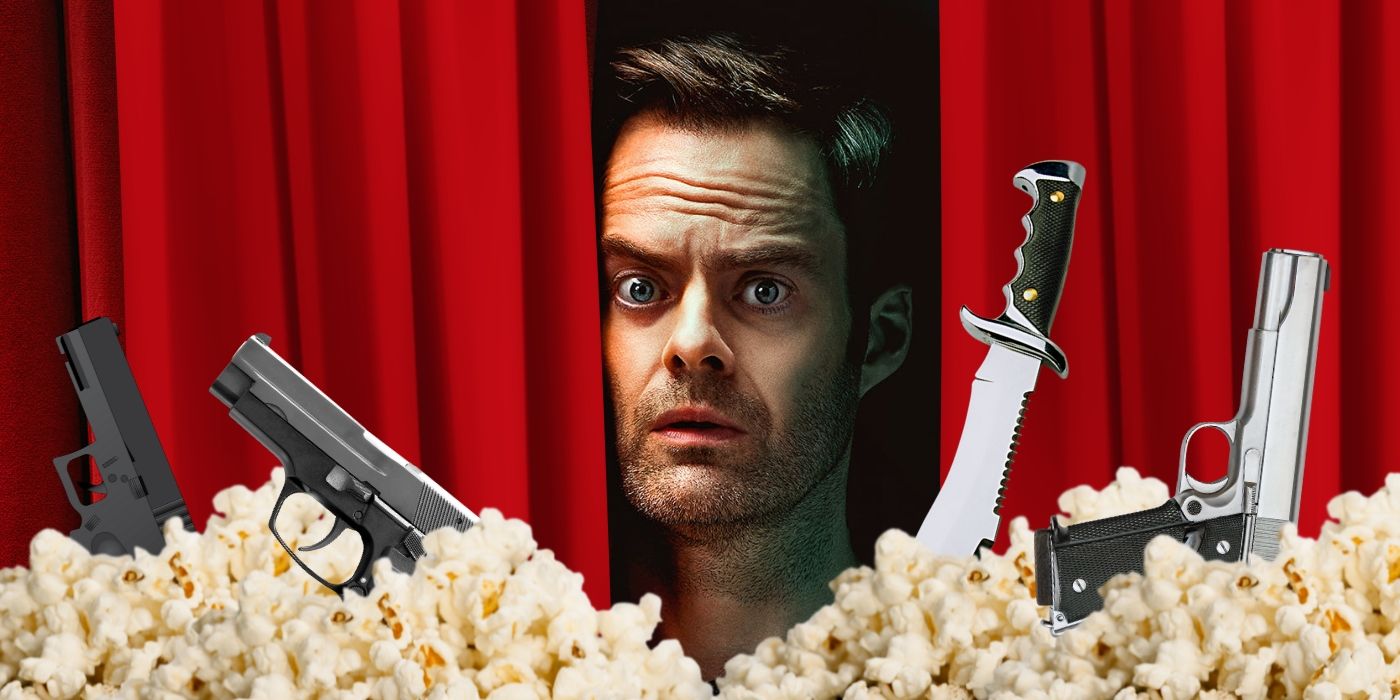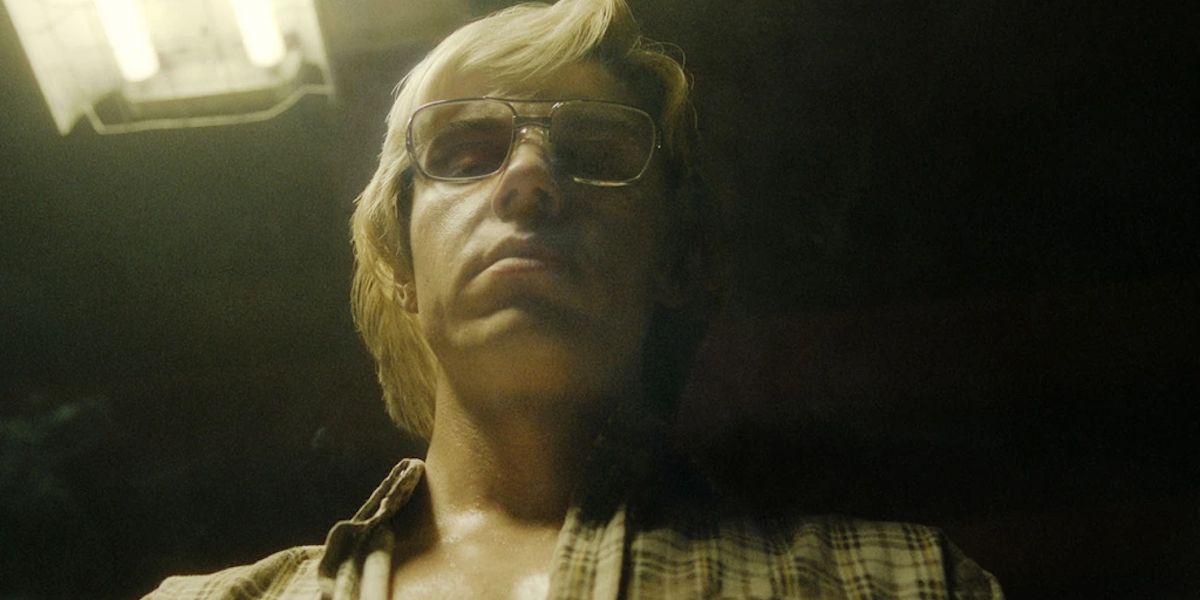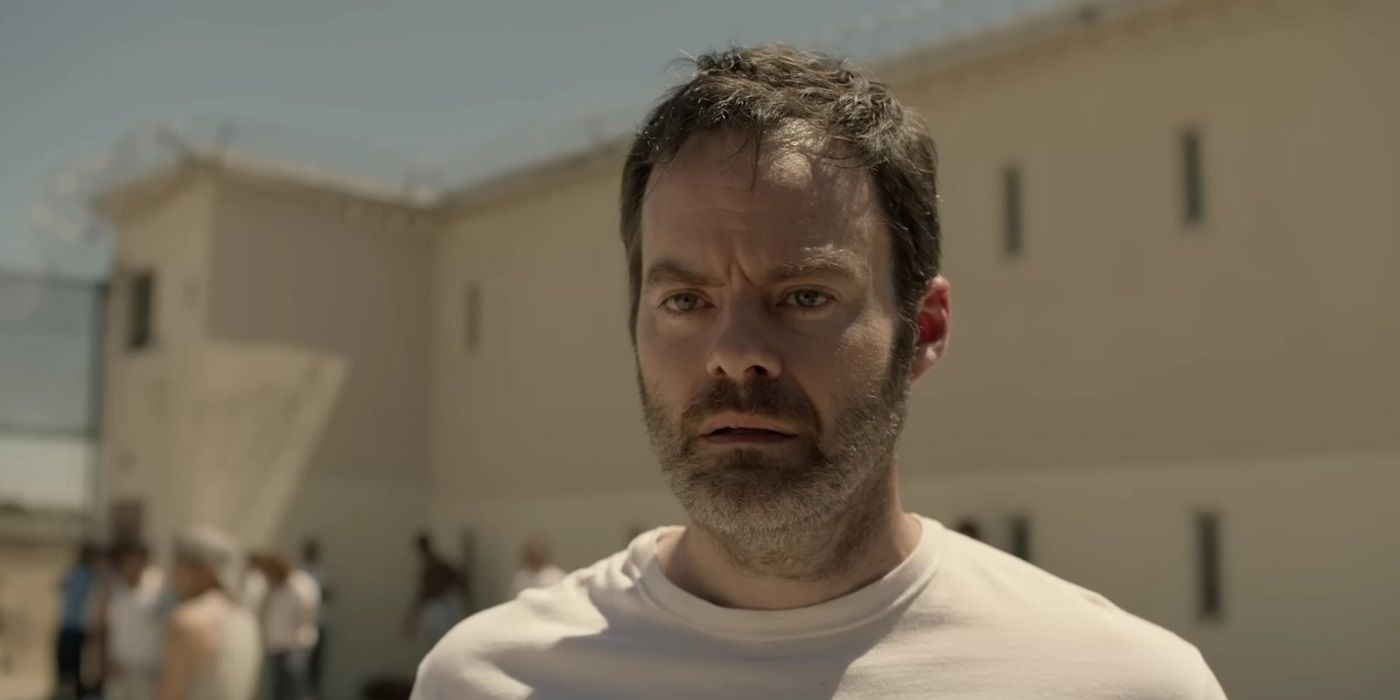[Editor’s note: The following contains spoilers for Season 4 of Barry.]The news of a Barry Berkman (Bill Hader) biopic is troublesome for a lot of people in HBO's Barry. It carries on with the series' tradition of drawing on reality to base its own story, as the very real trend of true crime and serial killer content seems to have no end in sight. By now, it's difficult meeting anyone who doesn't watch at least one series or likes at least one movie in the genre, and it's pretty meta on Barry's part to use it as the main driver for the end of the show, but we know that's exactly what it likes to do.
The whole plot of the Berkman biopic started in the previous episode, "Tricky Legacies," when Gene Cousineau (Henry Winkler) showed up at the Warner Bros. lot demanding to speak to the CEO about the whole project. He's greeted by an executive (Annie Chang) who's doubtful he's even the real Cousineau after he's been missing for eight years. The whole thing evolves until, in this week's episode, "The Wizard," Gene openly attempts to stop the movie from going forward. Far away, in the middle of nowhere, Barry, now living with Sally (Sarah Goldberg) and their son John (Zachary Golinger), decides to return to Los Angeles to finally exact his vengeance upon Gene.
What’s Behind the True Crime Trend?
Although the true crime trend is somewhat recent, people have been fascinated by serial killers and gruesome real stories for as long as we can remember. In this sense, true crime is the natural next step in that fascination. People have been watching hit series about crime for a long time, like CSI, Dexter, Mindhunter... Even classic movies like Se7en have impacted how we consume this kind of content. They instigate us by developing a whole narrative around the crimes, so we can attempt to understand why a person would do such unspeakable things.
Going further, the current entertainment landscape is a machine that runs on audience numbers, and crime never fails to start a conversation. Remember Tiger King? Everyone was talking about it, and all of a sudden there were biopics being developed about Joe Exotic, and he and Carole Baskin became celebrities despite the whole thing being pretty bizarre. When the audience on a show like that grows, it immediately gets studios' and production companies' attention. Right now, for example, Love and Death brings the killer combo (no pun intended) of love, intrigue, sex, and true crime in a single show — how can people not want to watch it?
To engage the public, though, true crime can't have traditional forensic storytelling — otherwise, it would be boring. That's when actual producing, writing, and directing come in to make horrible people compelling to the audience. Jeffrey Dahmer isn't really someone who we would or should be talking about so often — he's a terrible person who did terrible things and deserved to be punished. But because of Evan Peters' portrayal of him and Ryan Murphy's work on Monster: The Jeffrey Dahmer Story, he went from being an actual person who committed actual crimes to a character we couldn't look away from, no matter how much we wanted to.
This air of mythology around the true crime trend, then, is what makes it so easy for people to watch. It's not the real psychopath, it's just about them. But because these movies and TV shows take the time to give these killers the spotlight, it often feels like movies and TV shows are somehow glorifying them.
What About the Berkman Biopic in ‘Barry’?
What makes Barry such a great show is how it uses traces of real psychopathy and immediately points out how bad and wrong it is. We've seen Barry try to be a better person because he knows what he does is evil — there's even the iconic dialogue with NoHo Hank (Anthony Carrigan) in which he asks "Am I evil?", and the response is "Absolutely! Do I not tell you that enough?" Over the seasons, we see how he can't escape his nature and goes full-on psychopath, his narcissism even making him pick podcasts that would justify his evil deeds so that he can feel good about them.
In "The Wizard," we hear Warner's proposal for the Berkman biopic as a "cat-and-mouse thriller between a teacher and his killer student," with Barry as the main character and villain, and Gene as the hero who ultimately defeats him. The problem with this is exactly the same as, for example, Jeffrey Dahmer's show, as this sort of approach inevitably puts the killer in the spotlight and highlights their abilities and reasoning. It fails to portray them as the despicable people they are, instead coloring them simply as people who can't be understood. There would be no reason to not put him as the main character because fewer people would be interested in seeing it. In this sense, even Cousineau's role isn't really that of a hero, because heroes are the focus of their stories. It also wouldn't be that of someone who outsmarts the villain, but instead something like Laurie Strode (Jamie Lee Curtis) to Barry's real-life Michael Myers.
However, the movie wouldn't work without its proposed fictional twist. Cousineau says this to the executive, stating that the story isn't true, even though it makes him a hero in the end for having survived Barry. When the executive argues that the movie tells the truth and is "what happened," she knows that, deep down, this is not the case, as the studio is determined to make the movie with or without Cousineau. What they are really doing is giving the chance for him to have a piece of this cake for the sake of having a little legitimacy to their take on the story. After all, this is what puts the "true" in "true crime." Gene replies and calls the movie "mindless entertainment," because, well, that's what it is. There's no need to "tell the truth," as it's pretty well established that Barry is the culprit and no one is questioning it. It's not up to a studio to tell the truth about a serial killer, but to the authorities. They just hide under this pretense to make some more money.
Of course, we can understand why he wouldn't want the movie made because he doesn't know if he has survived the whole story, as it's still playing out. It's been eight years, but Barry is still out there, so he's still a target. Maybe when that's all over, who knows? Seeing as how Barry was just captured by Jim Moss (Robert Wisdom), the movie may still get made after Barry is finally not an issue anymore because Gene is also very full of himself, but, until then, the story isn't over. So much so that, as we know, Barry goes to Los Angeles to kill Cousineau and stop the movie. Deep down, it's highly likely Barry wants the movie to be made because he's a narcissistic psychopath.
New episodes of Barry premiere on HBO Max every Sunday night.



